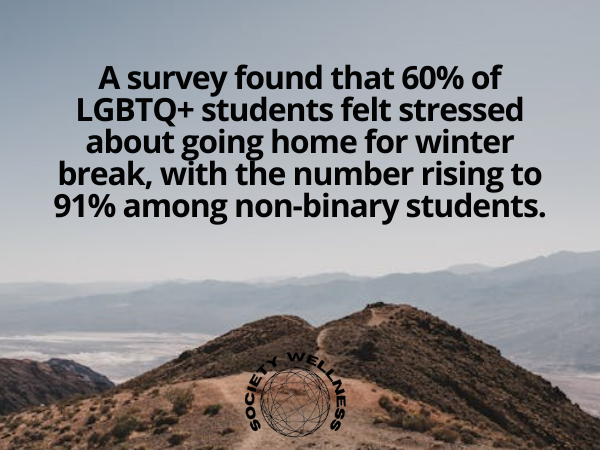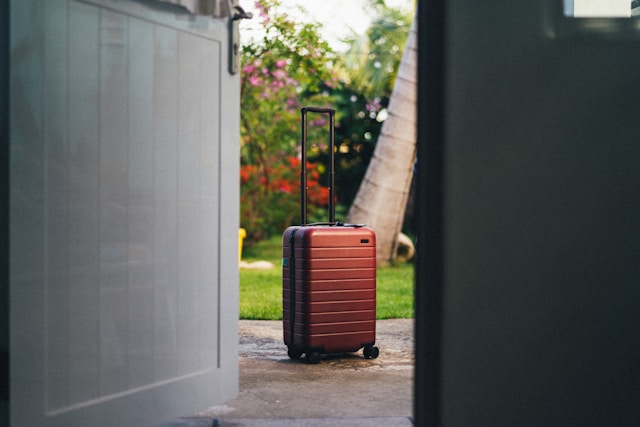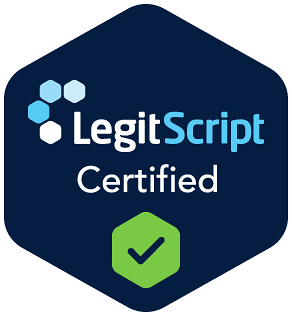For many, the holiday season is a time of joy, togetherness, and celebration. However, for those in addiction recovery—especially within the LGBTQ community—the holidays can also bring stress, emotional triggers, and anxiety.
Whether it’s family conflicts, social expectations, or the presence of alcohol and substances, the holidays can feel overwhelming. LGBTQ individuals often face additional challenges such as:
- Returning to unsupportive or non-affirming family environments
- Feeling pressure to conform to family expectations
- Experiencing loneliness or isolation from chosen family
- Navigating alcohol- or drug-heavy social gatherings
Even if the holidays present unique stressors, you can stay on track in your recovery with preparation, support, and the right coping strategies.
This guide covers:
- Common holiday triggers for LGBTQ individuals in recovery
- Practical last-minute tips to maintain your sobriety
- How LGBTQ addiction treatment programs provide holiday support
- Self-care and mental health strategies for a stress-free holiday
By taking proactive steps, you can enjoy the holidays while protecting your sobriety and emotional well-being.
Common Holiday Challenges for LGBTQ Individuals in Recovery
While the holiday season can be a wonderful time of love and connection, it also presents specific challenges for LGBTQ individuals in addiction recovery. Recognizing these challenges ahead of time can help you develop strategies to manage them effectively.
1. Family Stress and Emotional Triggers
- Some LGBTQ individuals do not have supportive families or may face criticism, misgendering, or invalidation when returning home.
- Family gatherings can stir up past conflicts, leading to feelings of anger, shame, or sadness.
- Emotional triggers from childhood trauma or rejection may increase cravings or distress.
2. Exposure to Alcohol and Substance Use
- Many holiday celebrations center around alcohol—from Thanksgiving dinners to New Year’s parties.
- Being around people who still use drugs or alcohol can be triggering, especially for those in early recovery.
- Friends and family may pressure you to drink or use substances, making it difficult to say no.
3. Social Pressure and Anxiety
- LGBTQ individuals often feel pressure to “mask” their true selves in family settings.
- There may be expectations to appear happy or successful, even if struggling internally.
- Feeling like you don’t fit in at family gatherings can lead to stress, isolation, and self-doubt.
4. Loneliness and Isolation
- Some LGBTQ individuals choose not to visit family due to strained relationships.
- Spending the holidays alone can trigger depression, anxiety, and cravings for substances.
- Not having a chosen family nearby can make it harder to stay engaged in a sober, supportive environment.
5. Disruptions to Recovery Routine
- Being away from your regular therapy sessions or LGBTQ recovery meetings can make it difficult to stay accountable.
- A change in routine—traveling, different meal schedules, lack of privacy—can impact mental and emotional stability.
- Missing community support during the holidays may increase the risk of relapse or emotional distress.
Understanding these challenges allows you to plan ahead and set yourself up for success.
Last-Minute Tips for Staying Sober During the Holidays
Even if you’re facing holiday challenges, there are practical steps you can take to protect your sobriety.
1. Plan Your Exit Strategy
- If a situation becomes too stressful, have a pre-planned excuse to leave early.
- Drive your own car, use a ride-share app, or arrange for a friend to pick you up.
- Identify a safe space (such as an LGBTQ-affirming friend’s house) where you can go if needed.
2. Bring Your Own Non-Alcoholic Drinks
- Having a non-alcoholic option in hand can help you avoid questions about why you’re not drinking.
- If someone offers you alcohol, practice saying no confidently:
- “No thanks, I’m sticking to my sparkling water tonight.”
- “I don’t drink anymore, but I’d love some coffee or soda.”
3. Set Clear Boundaries with Family
- If certain topics trigger you, be clear about what’s off-limits before family gatherings.
- Examples of boundary-setting:
- “I’d rather not talk about my past, let’s focus on the present.”
- “I appreciate your concern, but I don’t need advice about my recovery.”
- If family members push your boundaries, excuse yourself and take a break.
4. Have an Accountability Buddy
- Stay connected with a sober friend, sponsor, or LGBTQ recovery group for support.
- Send regular check-ins via text to stay grounded.
- If attending an LGBTQ support group isn’t possible in person, join a virtual meeting before or after family gatherings.
5. Create a Self-Care Plan
- Set aside time for activities that help you relax and recharge (e.g., meditation, exercise, listening to music).
- Take deep breaths and practice mindfulness techniques when feeling overwhelmed.
- Prioritize getting enough sleep—fatigue can weaken your ability to handle stress and avoid relapse.
6. Identify LGBTQ-Friendly Support Resources
- If you need extra support, reach out to LGBTQ addiction treatment programs or recovery groups.
- Online LGBTQ support groups are available during the holidays to provide community and encouragement.
7. Remember Why You Chose Recovery
- Reflect on how far you’ve come and the progress you’ve made.
- Remind yourself that one moment of temptation isn’t worth jeopardizing your health, relationships, and future.
- Keep a motivational mantra or recovery journal with you as a reminder of your commitment.

How LGBTQ Addiction Treatment Programs Provide Holiday Support
For LGBTQ individuals, having a supportive recovery environment is essential during the holidays. LGBTQ addiction treatment programs understand the unique challenges individuals face and provide resources tailored to their needs.
1. LGBTQ Partial Hospitalization Program (PHP)
- Best for individuals needing structured support during the holiday season.
- Includes daily therapy and group sessions for emotional stability.
2. LGBTQ Intensive Outpatient Program (IOP)
- Best for individuals navigating family gatherings and holiday triggers.
- Provides weekly therapy sessions, relapse prevention strategies, and emotional support.
3. LGBTQ Evening Outpatient Treatment Program
- Ideal for those maintaining work or travel commitments while in recovery.
- Provides evening therapy sessions and ongoing peer support.
4. LGBTQ Meth Addiction Treatment Program
- Supports LGBTQ individuals struggling with stimulant use during social events.
- Includes harm reduction education and trauma-informed therapy.
With LGBTQ-specific addiction treatment, individuals can receive affirming care and practical strategies to maintain recovery during the holidays.
Conclusion
The holidays can be stressful and triggering, but they don’t have to jeopardize your sobriety. With the right mindset, preparation, and support, you can navigate this season while maintaining your commitment to recovery.
Final Reminders:
- Your sobriety comes first. Set boundaries and prioritize your well-being.
- You’re not alone. LGBTQ recovery communities and support networks are available.
- One holiday does not define your journey. If challenges arise, stay focused on long-term healing.
If you need additional support this holiday season, LGBTQ Behavioral Health is here to help.
Call LGBTQ Behavioral Health today at 888.964.8116 to get connected with affirming addiction treatment and support. You deserve a holiday season filled with peace, joy, and sobriety.
FAQ About Staying Sober During the Holidays
Why are the holidays challenging for LGBTQ individuals in addiction recovery?
The holidays often bring family stress, social pressure, exposure to alcohol and substances, and feelings of isolation. LGBTQ individuals may also face non-affirming family dynamics or unresolved trauma, making it more difficult to maintain sobriety.
What can I do to avoid relapse during holiday gatherings?
- Plan ahead by setting an exit strategy in case you feel overwhelmed.
- Bring your own non-alcoholic drinks to avoid temptation.
- Stay connected with an LGBTQ recovery group or sponsor for support.
- Practice self-care to manage holiday stress and triggers.
How do I set boundaries with family members who don’t support my recovery?
- Be direct and firm about what topics you will and won’t discuss.
- Have a prepared response for uncomfortable questions about your sobriety.
- Limit time with unsupportive family members and focus on those who uplift you.
- Remember that it’s okay to leave early or opt out of gatherings that feel unsafe.
What if I feel lonely or isolated during the holidays?
- Reach out to chosen family, LGBTQ support groups, or online recovery communities.
- Attend virtual LGBTQ recovery meetings to stay connected.
- Engage in self-care activities, such as journaling, meditation, or volunteering.
- Remember that being alone is better than being in an unhealthy or triggering environment.
How can LGBTQ-specific addiction treatment programs help during the holidays?
LGBTQ addiction treatment programs provide:
- Specialized therapy for holiday-related stress and triggers.
- Support groups for LGBTQ individuals facing family or social challenges.
- Outpatient programs that offer flexible care throughout the season.
- Safe, affirming spaces where LGBTQ individuals can maintain recovery in a supportive environment.

